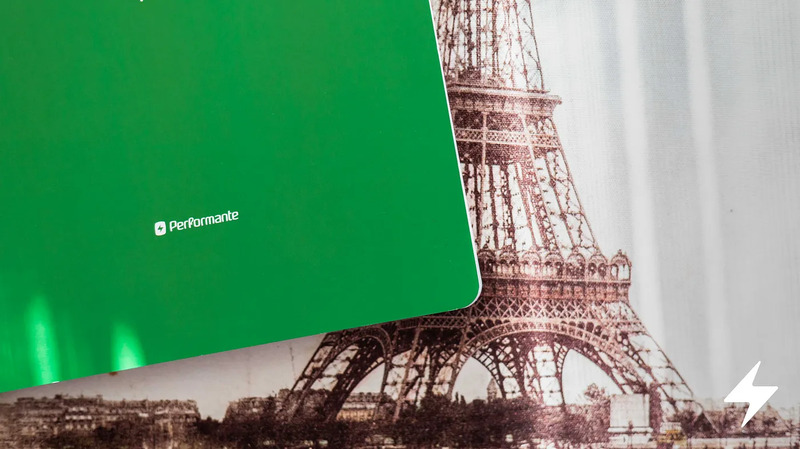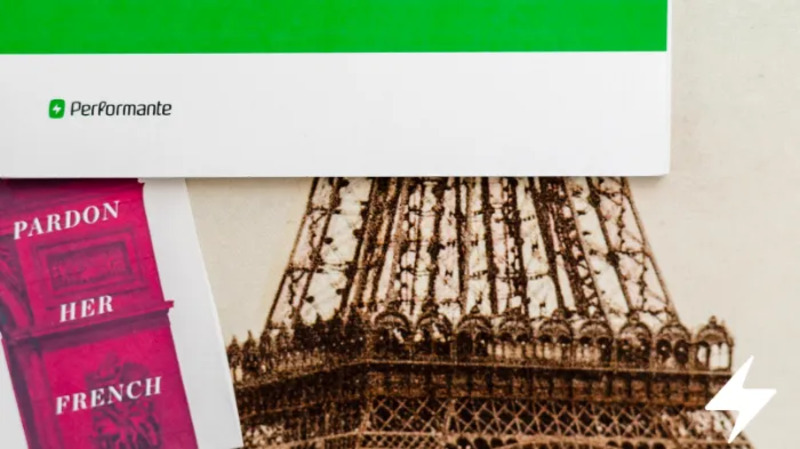The world’s irony is immense — while using the video-on-demand services, we could get everything and more, even what we actually didn’t demand. For example — a sad realisation we’re not able to bear yet another movie where Americans save the day. And the streaming services? Hello, did we ask for the stream of stereotypes about certain nationalities? Yes, the latest (ok, almost latest) Netflix production is both, and it received pretty understandable backlash from critics of all sorts. Suddenly all the bloggers, vloggers, and people who even weren’t ones before seeing this series felt the pressing need to say at loud what they didn’t like about “Emily in Paris”.

L’Etranger Au Paradis*
Long story short — the Netflix original series focuses on the (mis)fortunes of one fine, young lady who was accidentally transferred to the French marketing company named “Savoir” to implement some changes in the approach towards the clients. Quoting Emily herself, to “bring the American perspective on the things” which practically means, to persuade all the brands to use social media. In the meantime, she also experiences the French perspective on things, aka she drinks a lot of wine, eats tons of buttery croissants, and flirts with handsome men, because that’s what France is all about, right? Luckily for Emily (and for you, dear reader), I won’t be focusing on the cultural part at all, as it was done too many times all over the Internet. I also won’t take the perspective of how many times “Emily…” got it wrong or right. I’d rather be talking about 12 times Darren Star, the creator of the show, didn’t understand the general marketing rules and did some weird plot choices to… what exactly? I don’t understand, maybe, following the series theme, it was lost in translation? Or maybe it’s Darren Star’s trademark to picture freely the ups and downs of specialists in communication, like he did in his iconic “Sex and the city”? Whatever the answer is, let the show begin. Or, when in Paris, the cabaret.
1 Comme h’abitude*
“Savoir”, the French marketing firm where Emily is transferred, had been acquired by her native American company. That kind of merge is kind of a big deal, right? Well, not for the show’s creator and his writers. The Americans send to Europe only one person (originally it was supposed to be Emily’s boss, but she’s got pregnant), and no one bothers to notify the French about the newcomer. On the other hand, the French don’t treat this situation as an impulse to reflect what does this mean for their internal procedures nor general situation. What’s more, the very owner of the Savoir is dissing Emily’s presence here, as if it was totally unnecessary, while probably he was the decisive person in terms of the merge. But most of all, who sends a 20-something young unexperienced marketing executive and don’t supervise her, even remotely? Oh, wait, her American boss actually calls her once, but only to check whether she found a romance in the capital of romances.
2 Le tourbillon*
When someone who has always been working as a marketing executive for medicine products is transferred not only to the other country but also to another area of marketing (luxury goods), it’s not an easy switch of career. It needs some research and learning: the market, the audience, the competition, the clients, the reality of the country we are in… unless you’re Emily, apparently. She walks into the world of perfumes and haute couture with cheap puns and this irritating manner of smug, round, obvious comments “from the outsider’s perspective”. And she always gets away with everything, even the most ridiculous mess she’s created. I don’t get how the creators want her to be likeable if she’s never wrong nor get any transformative plot that let her grow.
3 Tu es fou*
A person who is as keen on social media as Emily is (she runs successfully her Emily in Paris Instagram profile from the day one in the city of love) should know, that we’re not allowed to post photos of random people without asking their permission. Emily jogs through the streets of Paris and finds out, that French girls are smoking outside the fitness club. And that’s such a shocker for her (although she comes from the country where people order Diet Coke to the fatty burger), that she immediately takes a photo of them and posts it with some “witty”and “catchy” comment.
Why, Emily, oh why?
4 Ah, le Joli Jeu*
If you ever worked in the agency you know that no matter how heated arguments led you to your presentation ideas, at the meeting you’re speaking in one voice as a team and you got all the concepts discussed and rehearsed. Emily does the ultimate disloyal maneuver: she is asked by her boss for ideas, then the ideas are presented and they’re clearly not catchy in the Client’s perspective, so Emily pops up with another one during the meeting. Doesn’t she know that shooting ideas offhandedly makes her team look ridiculous? Doesn’t she know she was supposed to prepare her brilliant ideas in agreement with the others?
5 Sans rancune*
Why the advert for the female perfume looks like an advert for the male one? A naked woman, walking boldly through the bridge of Paris and being desired by the file of men is a theme for the ad, created by the Savoir company for the tone of their key client. Emily is shocked so she posts the poll on Twitter, asking the audience whether it is sexy or sexists…. And that’s it. There’s no deeper strategy to this, just a vane play on words and a stereotypical video to follow, but in the social media world of it’s somehow revolutionary. Dear mister Star, do you know what is revolutionary? Kirsten Stewart breaking her free to the song “Runnin’” by Beyonce and Naughty Boy in a beautiful, empowering Coco Chanel ad. By the way, have you ever seen the ads for female perfumes from the last, let’s say, five years, mister? What strong female leads they all have? Have you bothered yourself to watch Cate Blanchett saying yes to new things in the sexy-not-sexist red dress? Have you seen Natalie Portman drifting the word “love” with the tires of her pink car in the “Love” perfumes campaign? Have you observed how Jennifer Lawrence cockily splits the water towards the camera in her “Joy” advert? Well, I suppose you have not. But you wanted to prove your point about raunchy, steamy and sex-obsessed French culture, so naked wandering lady came — no pun intended — in handy.
6 Comme des enfants*
Why OBVIOUSLY the naked woman in the ad is called sexist, while the female boss and her female assistant bonding over the love talks is not? Emily has some authority issues from day one and her new, French boss is more than reluctant towards her, but all in all, they play together in one team. And yet, they never bond professional-wise, nor trade secrets of their marketing approach. The only time Emily’s boss warms up to her is when she discovers that a young overzealous, social-media loving American intruder is NOT having an affair with her lover.
So far, je ne regrette rien when it comes to the way I’m grilling this piece of work and I’m gonna grill it some more till it becomes a French toast. Ok, enough with the Emily-like puns, they seem dangerously contagious. Do you want to learn about six more examples of the show creators’ ideas on working in marketing gone wrong? Please, stay tuned for the second part of this mini-series, which will be coming soon.
*As the American TV series creators often use the titles of the songs for the episode titles, I’m going all for that. Have fun with finding which famous French songs I applied here and finding out what do they mean!





